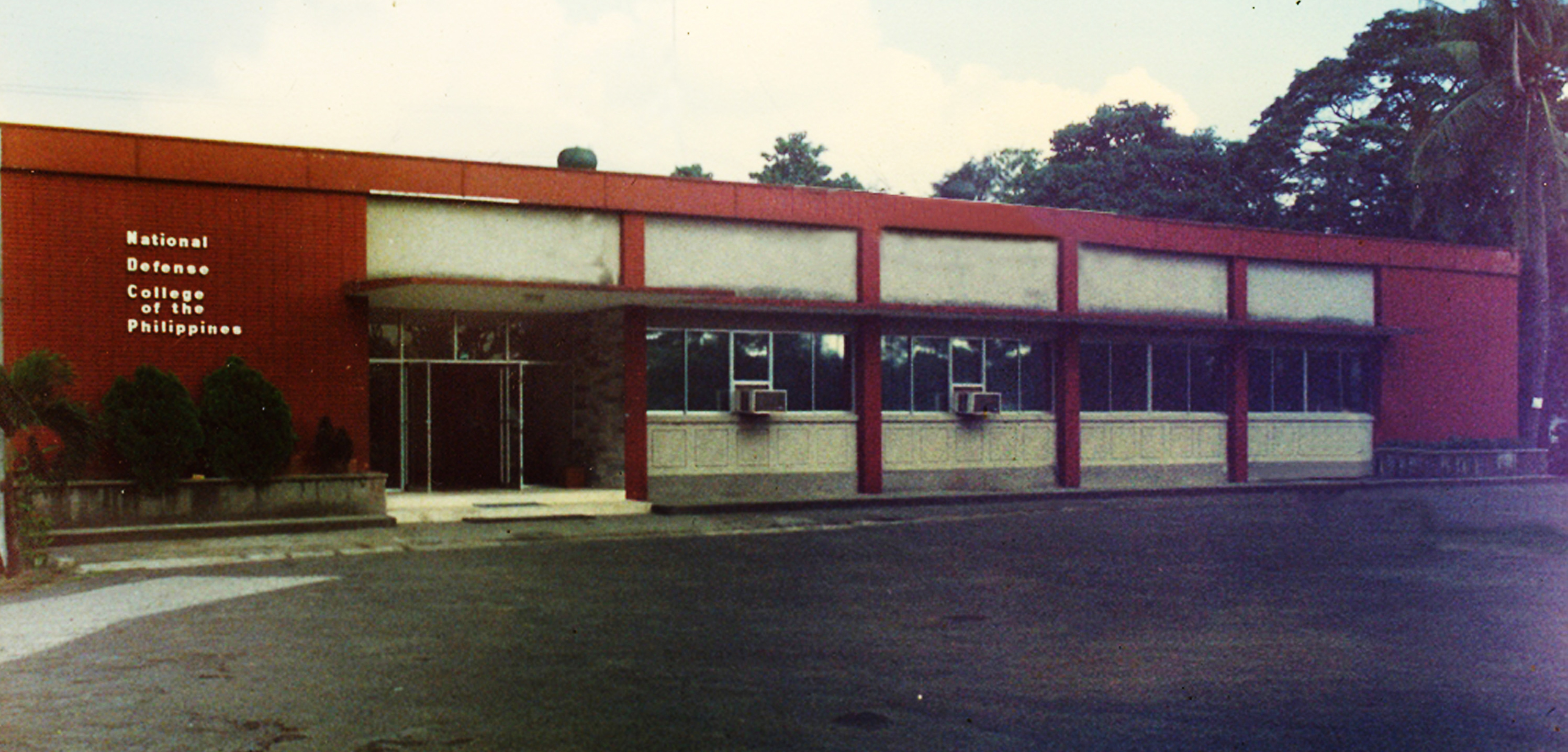
(Old NDCP Building formerly located inside Fort Bonifacio, Taguig City)
The National Defense College of the Philippines (NDCP) was first conceived in 1957 when the military advisors of the Southeast Asia Treaty Organization (SEATO) proposed the setting-up of a SEATO War College in the Philippines. On 12 August 1963,President Diosdado Macapagal signed Executive Order No. 44, authorizing the establishment of the National Defense College of the Armed Forces of the Philippines (NDCAFP) and putting the College under the administrative and operational guidance of the AFP Chief of Staff. The College opened its first Resident Course (RC) on 15 February 1966.
On September 1972, President Ferdinand E. Marcos signed Presidential Decree No. 190, creating the National Defense College of the Philippines to be organized and administered by the AFP Chief of Staff under the general supervision and control of the Secretary of National Defense; providing for the creation of an Academic Board with the power to confer the degree of Master in National Security Administration (MNSA) and to assist the NDCP President in the discharge of its functions; and, giving the authority to graduates to use with honor the
abbreviations, MNSA, after their names, among others.
Since its creation the NDCP has built itself as the academic pillar of the Department of National Defense and one of the country’s Centers of Excellence on defense and security. As an institution where admission is an honor, it has produced MNSA graduates, who fulfilled the calling of their Alma Mater by organizing into a strong vibrant alumni organization.
On 01 January 1975, the NDCP Alumni Association was duly registered with the Securities and Exchange Commission. Through the years, the NDCP Alumni network of scholars and warriors grew as a powerhouse of men and women from a diverse range of sectors, including Cabinet Secretaries and senior officials of national government agencies, Senators and Representatives of Congress, Supreme Court Justices and officials of the Judiciary, senior officers in the Armed Forces of the Philippines (AFP) and the Philippine National Police (PNP), local chief executives, executive officers of national and local government agencies, leaders of civil society organizations and private industries. Former President Fidel V. Ramos (RC 3), former Vice-President Jejomar C. Binay (RC 24), former Senator Loren Legarda (RC 27), and Senator Francis Tolentino (RC 33) lead the list of distinguished leaders among the alumni. Also, an increasing number of high ranking officers of the Allied Armed Forces from around the world, such as, Australia, India, Malaysia, Nigeria, Pakistan, Sri Lanka, and Thailand, comprises the alumni association. Seven regional alumni chapters are established in Western Visayas, Central Visayas, Southern Mindanao, Western Mindanao, Northern Luzon, Bicol Region, and Central Luzon.
Among the notable accomplishments of the alumni association are:
- Installation of the NDCP Historical Marker at the NDCP Building
- Annual Pandayan Awards, 2013
- Annual Publication of the Katiwasayan Journal, 2013-2019
- Publication of Meeting the Challenge of Cybersecurity: The Philippine Situation and Outlook, 2013
- Updated Alumni Directory, 2015-2019
- Joint Sponsorship and Hosting of the following ASEAN/International Conferences:
– Security Congress APAC 2015 at Hotel Sofitel, Philippines
– International Forum: Resilience on the Age of Global Insecurity, August 2018, Manila
